Filter by
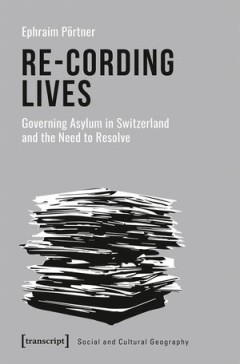
Re-Cording Lives: Governing Asylum in Switzerland and the Need to Resolve
Administrative asylum procedures are permeated by tensions between rationalities of legality, efficiency, and deterrence in asylum casework and their various effects on cases. Based on ethnographic research in the Swiss asylum administration, this book unveils the pragmatics and politics of rendering asylum cases resolvable by re-cording the lives of applicants in terms of asylum. With his read…
- Edition
- -
- ISBN/ISSN
- 9783839453490
- Collation
- -
- Series Title
- -
- Call Number
- 351.81 POR r
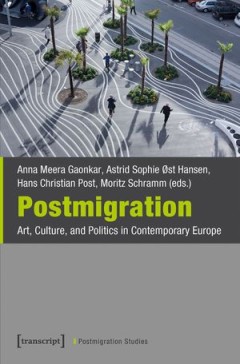
Postmigration: Art, Culture, and Politics in Contemporary Europe
The concept of »postmigration« has recently gained importance in the context of European societies' obsession with migration and integration along with emerging new forms of exclusion and nationalisms. This book introduces ongoing debates on the developing concept of »postmigration« and how it can be applied to arts and culture. While the concept has mainly gained traction in the cultural s…
- Edition
- -
- ISBN/ISSN
- 9783839448403
- Collation
- -
- Series Title
- -
- Call Number
- 351.81 POS p

Living in Refuge: Ritualization and Religiosity in a Christian and a Muslim P…
This comparative ethnography of a Muslim and a Christian Palestinian refugee camp in Lebanon focuses on contrasting social belonging processes through a ritualization approach. Leonardo Schiocchet argues that contrasts emerge out of the intersectionality of religiosity, nationhood, refugeeness and politics, and synthesizes academic research on piety and moral self-cultivation and on the everyda…
- Edition
- -
- ISBN/ISSN
- 9783839460740
- Collation
- -
- Series Title
- -
- Call Number
- 351.81 SCH l
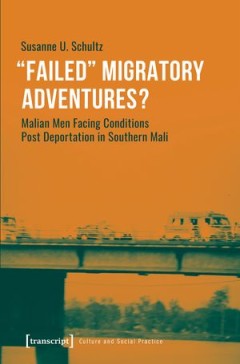
Failed Migratory Adventures?: Malian Men Facing Conditions Post Deportation i…
The effects of the intra-African and European deportation regimes brought about since the European Union's externalization of its migration and development policy by transferring it to countries of sub-Saharan Africa remain largely understudied - especially their effects on people's everyday life after forced returns. Based on extensive field research, Susanne U. Schultz's book analyses the sup…
- Edition
- -
- ISBN/ISSN
- 9783839460092
- Collation
- -
- Series Title
- -
- Call Number
- 301 SCH f
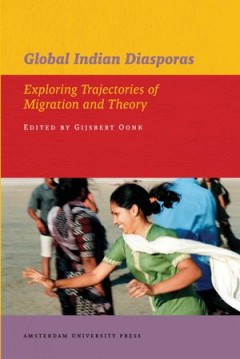
Global Indian Diasporas
This book discusses the relation of South Asian migrants to their homeland, the reproduction of Indian culture abroad and the role of the Indian state in reconnecting migrants of India, focusing on the limits of the diaspora concept, rather than on its possibilities. From a comparative perspective, using examples from South Asian communities in Suriname, Mauritius, East Africa, the UK, Canada a…
- Edition
- -
- ISBN/ISSN
- 9789053560358
- Collation
- -
- Series Title
- -
- Call Number
- -
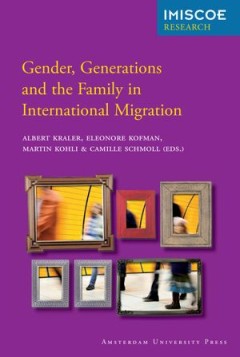
Gender, Generations and the Family in International Migration
Family-related migration is moving to the centre of political debates on migration, integration and multiculturalism in Europe. It is also more and more leading to lively academic interest in the family dimensions of international migration. At the same time, strands of research on family migrations and migrant families remain separate from - and sometimes ignorant of - each other. This volume …
- Edition
- -
- ISBN/ISSN
- 9789089642851
- Collation
- -
- Series Title
- -
- Call Number
- -
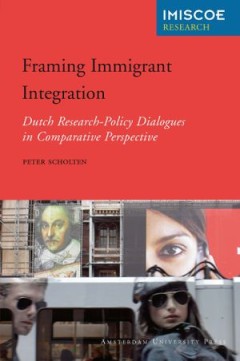
Framing Immigrant Integration
Debates on immigrant integration are often caught up in what academics and politicians like to call 'national models of integration'. Researchers and policymakers long for common ground. In the Netherlands, their symbiosis is fed by multiculturalism, something for which Dutch society has long been seen as exemplary. Still, the incorporation of migrants remains one of the country's most pressing…
- Edition
- -
- ISBN/ISSN
- 9789089642844
- Collation
- -
- Series Title
- -
- Call Number
- -
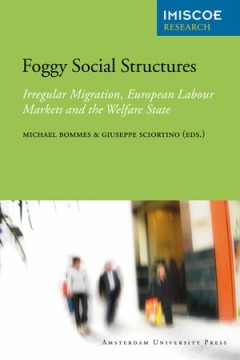
Foggy Social Structures
Irregular migration systems are giving way to an undocumented population in Europe that is estimated at some millions. The migrants manage to live and work for years without a certified identity yet within 'foggy' social structures. What strategies and mechanisms allow them to avoid detection, generate an income and access necessary services? What alternatives are pursued - at whatever human co…
- Edition
- -
- ISBN/ISSN
- 9789089643414
- Collation
- -
- Series Title
- -
- Call Number
- -
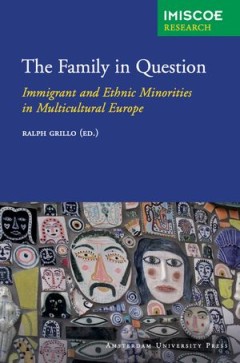
The Family in Question Immigrant and Ethnic Minorities in Multicultural Europe
The family lives of immigrants and ethnic minority populations have become central to arguments about the right and wrong ways of living in multicultural societies. While the characteristic cultural practices of such families have long been scrutinized by the media and policy makers, these groups themselves are beginning to reflect on how to manage their family relationships. Exploring case stu…
- Edition
- -
- ISBN/ISSN
- 9789053568699
- Collation
- -
- Series Title
- -
- Call Number
- -
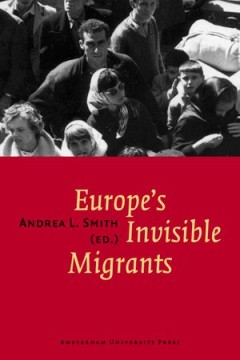
Europe's Invisible Migrants
Following the decolonization movements that swept the globe after World War II, between four and six million people were 'returned' to Europe from the colonies. From an exporter of people, Europe turned to a site of immigration for the first time in the twentieth century. Until now, these migrations have been overlooked as scholars have highlighted instead the parallel migrations of former 'col…
- Edition
- -
- ISBN/ISSN
- 9789053565711
- Collation
- -
- Series Title
- -
- Call Number
- -
 Computer Science, Information & General Works
Computer Science, Information & General Works  Philosophy & Psychology
Philosophy & Psychology  Religion
Religion  Social Sciences
Social Sciences  Language
Language  Pure Science
Pure Science  Applied Sciences
Applied Sciences  Art & Recreation
Art & Recreation  Literature
Literature  History & Geography
History & Geography